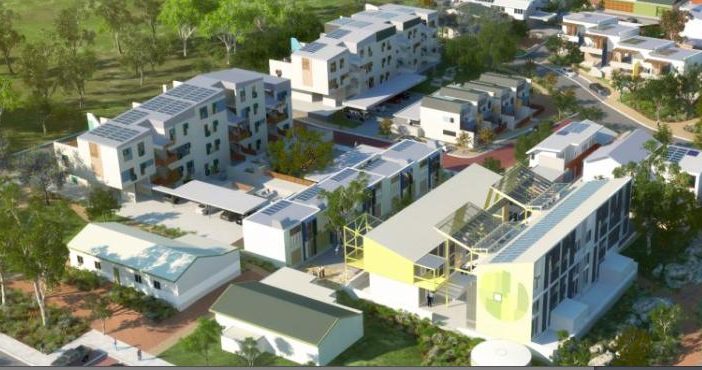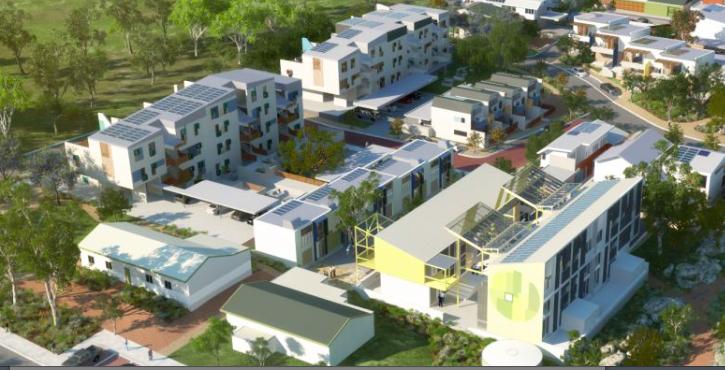
A major strata apartment development in the heart of the city of Fremantle is expected to be the world’s largest test project of shared rooftop solar, battery storage and electric vehicles.
 The White Gum Valley housing project – flagged nearly a year ago – was formally launched on Wednesday after receiving $1 million in funding from the Australian Renewable Energy Agency.
The White Gum Valley housing project – flagged nearly a year ago – was formally launched on Wednesday after receiving $1 million in funding from the Australian Renewable Energy Agency.
The site will feature more than 80 apartments of various sizes and enough solar and storage to account for around 70 per cent of their electricity needs. In all there will be about 150kW of solar and 300kWh of battery storage.
But the project is ground-breaking in other areas. Solar not used by individual units will be shared with others, and then with other buildings in the same complex.
This peer-to-peer trading means that the solar output will not be sent back to the grid at a low tariff.
A number of electric vehicles will also be available to be powered by the solar installations and shared among the community.
The project is a collaboration between Curtin University, project developer LanCorp, grid operator Western Power, along with the Low Carbon Living CRC, the City of Fremantle and Solar Balance.
Curtin University’s Jemma Green says the project is believed to be the world’s first zero carbon neighbourhood project using solar PV and battery storage, although some projects in Germany may make a similar claim.
It may well be the biggest. In any case, it is groundbreaking. Around 1.5 million homes in Australia have rooftop solar, but the strata unit market, which accounts for nearly one-third of the household sector, has not found a way in to it.
Green says this project seeks to find an answer, by creating a grid-connected micro-grid or embedded network that allows all tenants access to the solar and storage facilities.
The power bills will come to individual tenants not from an electricity company, but from the body corporate (possibly via an energy services company), which then seeks a return on its investment, but is likely to be able to offer significant savings to it’s the residents.
Green says this was key. Much strata property is rented, and there has been little incentive for landlords to invest in solar or storage. This provides an avenue to capture and inspire that investment.
“We have found a way to do this. It can be done under strata laws – strata managers can become citizen utilities.”
The strata will act as a quasi-utility that will own and operate the solar power infrastructure and sell power directly to home owners and tenants – a kind of “citizen utility”, Green says.
“In a world where we are increasingly seeing people living in shared developments, these kinds of innovations potentially reflect the future of power utilities, a future that makes solar power a viable option for everyone.”
White Gum Valley is located just 3km from centre of Fremantle city centre, and will deliver more than 80 new dwellings and accommodate approximately 180 residents.
The complex is under construction now. Some will be available for residents with the next 3 to four months, and all are expected to be finished in 2017.
Giles Parkinson is founder and editor of One Step Off The Grid, and also edits and founded Renew Economy and The Driven. He has been a journalist for 35 years and is a former business and deputy editor of the Australian Financial Review.



